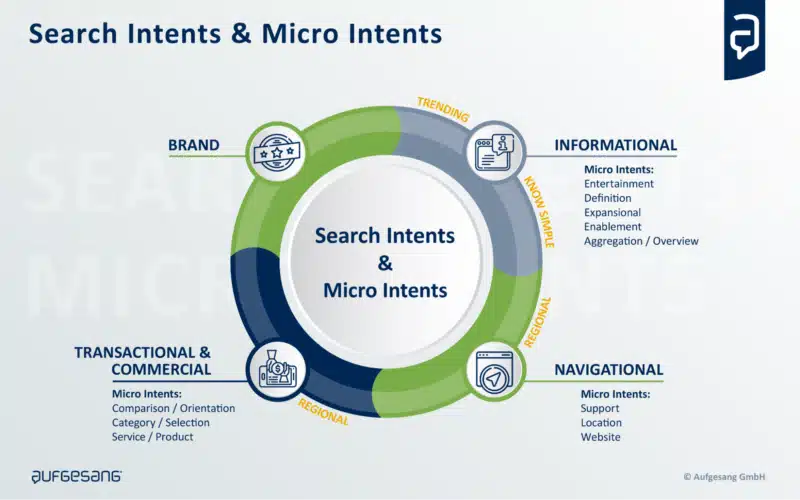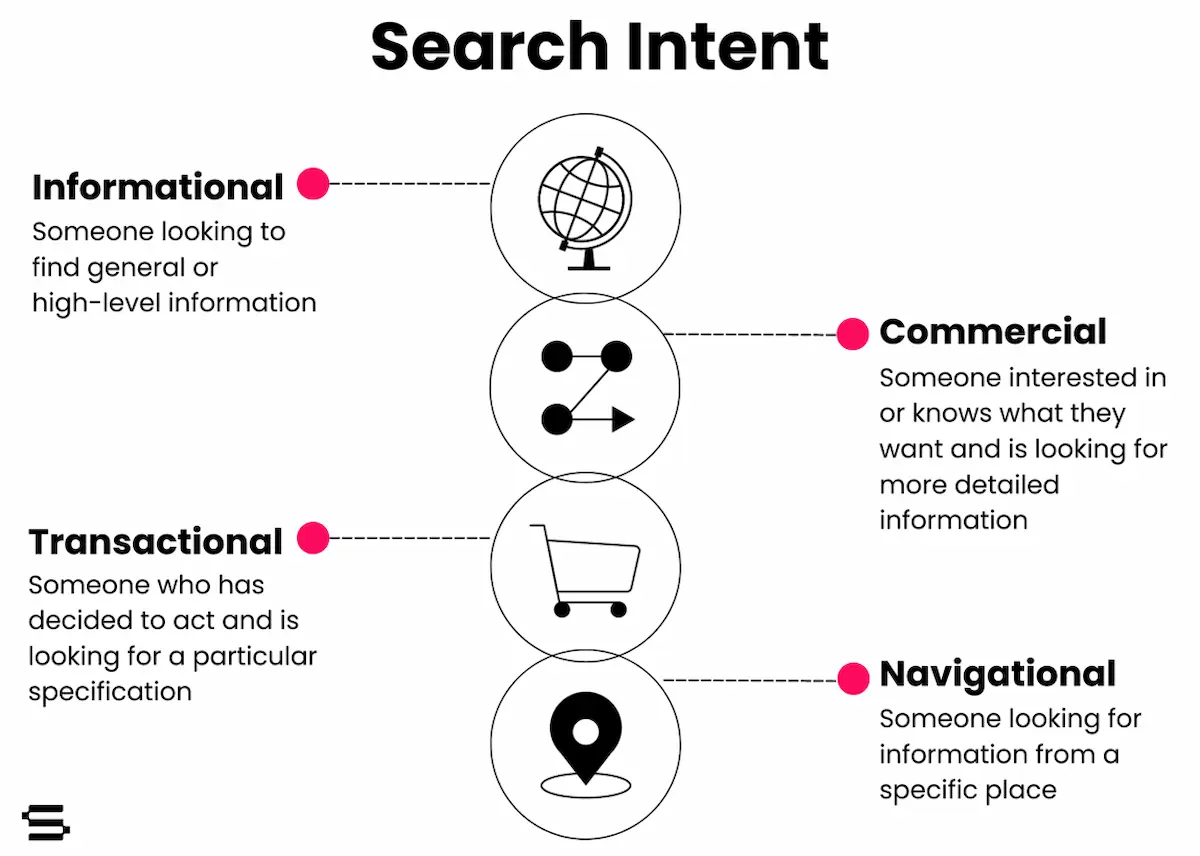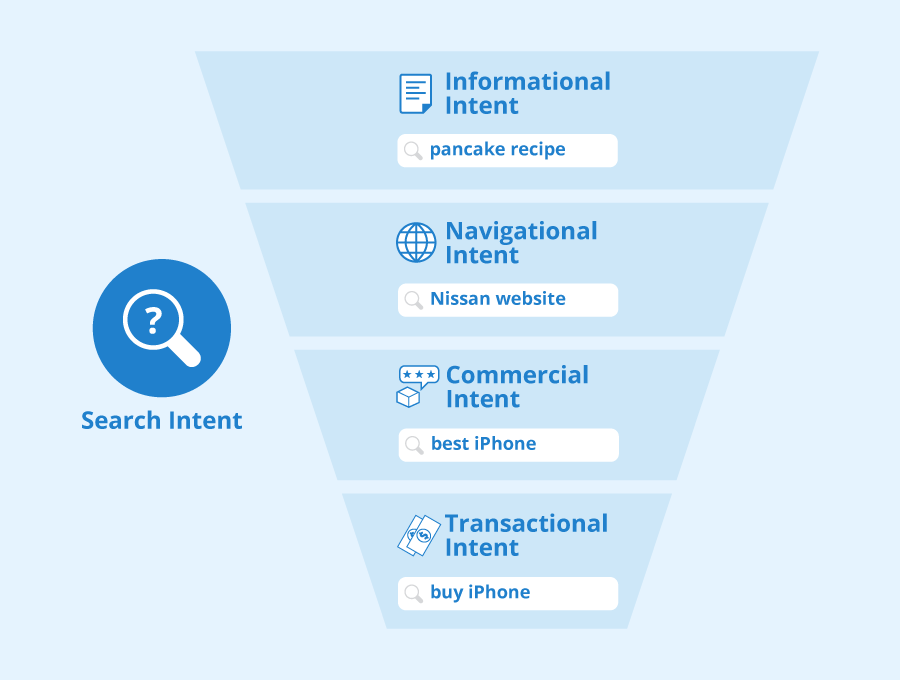Search intent refers to the underlying motivation or purpose behind a user's online search query. Understanding search intent is crucial for effective keyword selection in SEO because it helps align content with what users are actually looking for, improving site rankings and user satisfaction.
There are four primary types of search intent commonly recognized:
-
Informational Intent: The user seeks knowledge or answers to questions. Queries often include question words like "how," "what," "why," or resource-oriented terms such as "guide," "tips," or "examples." These users are not necessarily looking to buy but want to learn more about a topic. For example, "how to teach a puppy to sit" is informational.
-
Navigational Intent: The user wants to find a specific website or page, often searching for brand names or specific sites with modifiers like "login" or "homepage." For example, searching "Facebook login" shows navigational intent.
-
Commercial Intent (also called commercial investigation): The user is researching products or services but is not yet ready to purchase. They might look for reviews, comparisons, or best-of lists, using keywords like "best," "review," or "comparison." For example, "best HVAC systems for small homes" reflects commercial intent.
-
Transactional Intent: The user is ready to make a purchase or complete a transaction. Keywords often include "buy," "order," "coupon," or "discount." These queries typically lead directly to product or service pages optimized for conversion.
Some frameworks also recognize local search intent as a subset of transactional or informational intent, where users seek products, services, or information within a specific geographic area.
Impact on Keyword Selection:
- Selecting keywords aligned with the correct search intent ensures that content meets user expectations, which can improve engagement, reduce bounce rates, and increase conversions.
- For informational intent, keywords should focus on educational content, how-tos, and guides.
- For commercial intent, keywords should highlight comparisons, reviews, and product features.
- For transactional intent, keywords should be direct calls to action, such as "buy," "order," or "discount."
- For navigational intent, keywords often include brand or site names and help users find specific pages.
By analyzing both the keywords and modifiers in a query, marketers can better determine intent and tailor content accordingly, enhancing SEO effectiveness and user experience.
In summary, understanding the type of search intent behind keywords is essential for selecting the right keywords and creating content that satisfies user needs at different stages of the buying or research journey.




















Maple Ranking offers the highest quality website traffic services in Canada. We provide a variety of traffic services for our clients, including website traffic, desktop traffic, mobile traffic, Google traffic, search traffic, eCommerce traffic, YouTube traffic, and TikTok traffic. Our website boasts a 100% customer satisfaction rate, so you can confidently purchase large amounts of SEO traffic online. For just 720 PHP per month, you can immediately increase website traffic, improve SEO performance, and boost sales!
Having trouble choosing a traffic package? Contact us, and our staff will assist you.
Free consultation